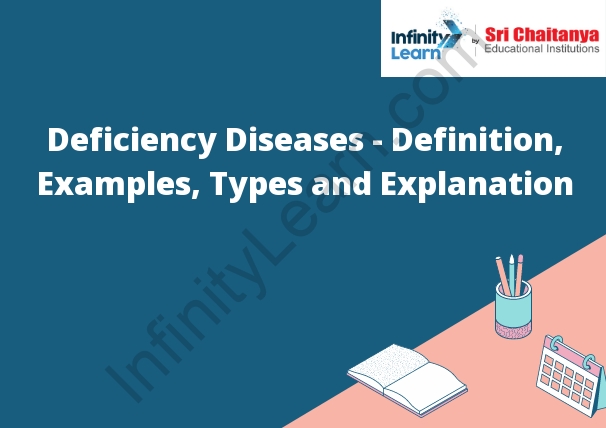Table of Contents
What is Deficiency Disease?
A deficiency disease is a disease caused by a lack of some essential nutrient in the diet. The most common deficiency diseases are caused by a lack of vitamin A, vitamin C, and iron.

Vitamin Deficiency
- A vitamin deficiency is a lack of vitamins in the body. This can be caused by not eating enough foods that contain the vitamins, or by problems with the digestive system that prevent the body from absorbing the vitamins.
- Some common symptoms of a vitamin deficiency include fatigue, weakness, poor appetite, weight loss, and problems with the immune system.
- Certain vitamins are essential for the body to function properly. The most important vitamins for the body to get from food are called the fat soluble vitamins. These include vitamins A, D, E, and K.
- Vitamin deficiencies can be treated with dietary changes and supplements.
Mineral Deficiency
A mineral deficiency is a lack of one or more minerals in the body. Minerals are essential nutrients that are needed for many bodily functions, including bone growth, energy production, and organ function. Symptoms of a mineral deficiency can vary depending on the mineral that is missing. Some common symptoms of a mineral deficiency include fatigue, weakness, mood changes, and changes in appetite or weight.
Types of Deficiency Diseases
There are many types of deficiency diseases, but some of the most common include:
- Anemia: A deficiency in red blood cells can cause anemia, which results in a lack of oxygen reaching the body’s tissues. This can cause fatigue, weakness, and shortness of breath.
- Imbalanced electrolytes: Electrolytes are minerals that help to balance the body’s fluids and maintain proper function of the nerves and muscles. A deficiency in electrolytes can cause muscle weakness, cramps, and irregular heart rhythm.
- Scurvy: A deficiency in vitamin C can cause scurvy, a disease that leads to the breakdown of collagen in the body. This can cause bruising, bleeding gums, and tooth decay.
- Beriberi: A deficiency in thiamin (vitamin B1) can cause beriberi, a disease that results in damage to the heart, nervous system, and muscles. Symptoms include fatigue, chest pain, and difficulty walking.
Examples of vitamin Deficiency Diseases
- A vitamin deficiency disease is a disease that is caused by a lack of vitamins in the body. Some common vitamin deficiency diseases include scurvy, rickets, and beriberi.
- Scurvy is a disease that is caused by a lack of vitamin C in the body. Symptoms of scurvy include weakness, fatigue, and swollen joints.
- Rickets is a disease that is caused by a lack of vitamin D in the body. Symptoms of rickets include bowed legs, stunted growth, and tooth decay.
- Beriberi is a disease that is caused by a lack of vitamin B1 in the body. Symptoms of beriberi include muscle weakness, numbness and tingling in the hands and feet, and heart failure.
Water-Soluble Vitamin Deficiencies
There are several water-soluble vitamin deficiencies that can occur, including deficiencies in thiamine (vitamin B1), riboflavin (vitamin B2), niacin (vitamin B3), pyridoxine (vitamin B6), and cobalamin (vitamin B12).
Thiamine deficiency can cause a condition called beriberi, which is characterized by weakness, weight loss, and abnormal heart function. Riboflavin deficiency can cause a condition called ariboflavinosis, which is characterized by a red, scaly rash around the mouth and nose, cracks in the corners of the mouth, and sensitivity to light. Niacin deficiency can cause a condition called pellagra, which is characterized by diarrhea, dementia, and dermatitis. Pyridoxine deficiency can cause a condition called anemia, which is characterized by fatigue, shortness of breath, and pale skin. Cobalamin deficiency can cause a condition called pernicious anemia, which is characterized by a pale complexion, fatigue, and shortness of breath.
Fat-Soluble Vitamin Deficiencies
- Fat-soluble vitamin deficiencies can result from inadequate intake, impaired absorption, or excessive loss of these vitamins. The most common fat-soluble vitamin deficiencies are deficiencies of vitamin A, vitamin D, and vitamin E.
- Deficiencies of vitamin A, vitamin D, and vitamin E can impair the absorption of essential nutrients from food, leading to a variety of health problems.
- Vitamin A is essential for the maintenance of healthy skin, mucous membranes, and vision. A deficiency of vitamin A can cause a condition called xerophthalmia, which is characterized by dry eyes, night blindness, and increased susceptibility to infection.
- Vitamin D is essential for the absorption of calcium and phosphorus from the intestine and for the maintenance of healthy bones. A deficiency of vitamin D can lead to a condition called rickets, which is characterized by soft, weak bones that can easily fracture.
- Vitamin E is essential for the protection of cells from damage by free radicals. A deficiency of vitamin E can lead to a condition called vitamin E deficiency anemia, which is characterized by red blood cells that are abnormally shaped and fragile.
Mineral Deficiency Diseases List
#1. Iron deficiency – occurs when there is not enough iron in the body.
Symptoms: fatigue, weakness, lightheadedness, shortness of breath, rapid heart rate, headache, pale skin, hair loss, and a craving for ice or cold drinks.
#2. Calcium deficiency – occurs when there is not enough calcium in the body.
Symptoms: muscle cramps, spasms, and contractions; numbness and tingling in the hands and feet; seizures; and abnormal heart rhythms.
#3. Magnesium deficiency – occurs when there is not enough magnesium in the body.
Symptoms: muscle cramps and spasms, restless leg syndrome, irregular heartbeat, and seizures.
#4. Potassium deficiency – occurs when there is not enough potassium in the body.
Symptoms: muscle weakness and cramps, fatigue, and irregular heartbeat.
#5. Zinc deficiency – occurs when there is not enough zinc in the body.
Symptoms: delayed wound healing, frequent infections, hair loss, eye inflammation, and a poor sense of taste and smell.









